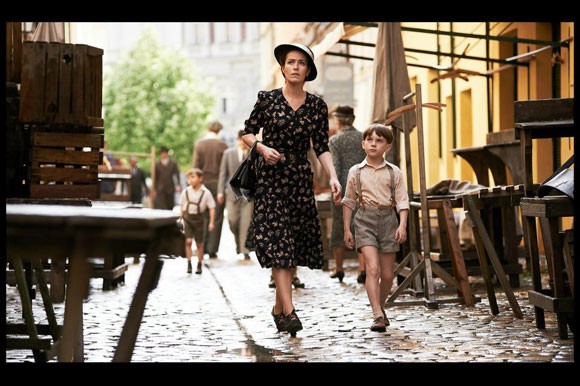Bulgaria tries its chances with Sneakers, a debut film from co-directors Valeri Yordanov and Ivan Vladimirov and produced by Gala Film (www.galafilm-bg.com) about six young adults taking a holiday away from the city.
Croatia selected Vegetarian Cannibal, the story of a corrupt doctor directed by Branko Schmidt and produced by Telefilm. The film won six awards at the Pula Film Festival (www.pulafilmfestival.hr).
The Czech Republic submitted a Czech-Polish-Slovak coproduction, In the Shadow of the Horse (www.intheshadowofthehorse.com), a film noir detective story set in 1953 directed by David Ondricek and produced by Lucky Man Films (www.luckymanfilms.com), Centrala Film (www.centrala.pl) and Trigon Production (www.trigon-production.sk) with support from the Czech State Film Fund (www.mkcr.cz) and the Polish Film Institute (www.pisf.pl).
Estonia has two films in the Oscar pool. Mushrooming written and directed by Toomas Hussar and produced by Piret Tibbo-Hudgens for Allfilm (www.allfilm.ee) is the tragedicomedy of a politician under suspicion of corruption who spends a day hunting mushrooms with his wife. The short animated film Body Memory by Ulu Pikov earned a nomination as the winner of the best animated film prize at the Krakow Film Festival (www.krakowfilmfestival.pl).
Finland nominated the Finnish-Estonian coproduction Purge directed by Antti Jokinen and produced by Solar Films (www.solarfilms.com) and coproduced by Estonia’s Taska Film (www.taska.ee) with funding from the Finnish Film Foundation (www.fsf.fi) and the Estonian Film Foundation (www.efsa.ee).
Hungary has submitted the Berlinale Silver Bear winner Just the Wind directed by Benedek Flieghauf and produced by Inforg-M&M Film (www.inforgstudio.hu).
Latvia is sending Gulf Stream Under the Iceberg written and directed by Yevgeny Pashkevich and produced by Nida Film (www.nidafilm.lv) with a budget of 2.3 m EUR and funding from the National Film Center of Latvia (www.nfc.lv). The film, based on the story of Lilith, Adam’s first wife, is told in three sections, with the final episode taking place in contemporary Latvia. The film was shot in Lativa, Malta, Czech Republic, Austria, Russia, and Syria.
Poland chose 80 milion directed by Waldemar Krzystek and produced by Media Brigade Banaszkiewicz and Kurek Sp.j.(www.mediabrigade.pl) with the support of the Polish Film Institute (www.pisf.pl) and Odra-Film (www.odra-film.wroc.pl). The a crime-comedy based on a true story of young Solidarity activists from Lower Silesia, who decided to actgaint the communist regime in 1981 by planning a bank-robbery to get to the money belonging to the workers union and frozen by the authorities.
Romania chose Christian Mungiu’s Cannes prize winner Beyond the Hills produced by Mobra Films (www.mobrafilms.ro). The film has already been sold in 38 territories.
Slovakia is also entering two films. Made in Ash (www.madeinash.com), a debut film directed by Iveta Grófová and produced by Protos Productions (www.protos.sk), Endorfilm (www.endorfilm.cz), and Punkchart Films, is a contemporary drama about a young Roma woman who moves to a town on the German border in search of a better life. The debut short animation film The Last Bus (www.poslednyautobus.sk) by Ivana Laučíková and Martin Snopek (www.feelmefilms.com) qualified for the Academy Awards by winning Grand Prix awards at the festivals of short films in Tampere and in Stuttgart.
Slovenia sends the box office and critical hit A Trip, the debut film from director Nejc Gazvoda and produced by Perfo Production (www.perfo.si), a low budget film about three friends who go on a final trip before their lives diverge.




















